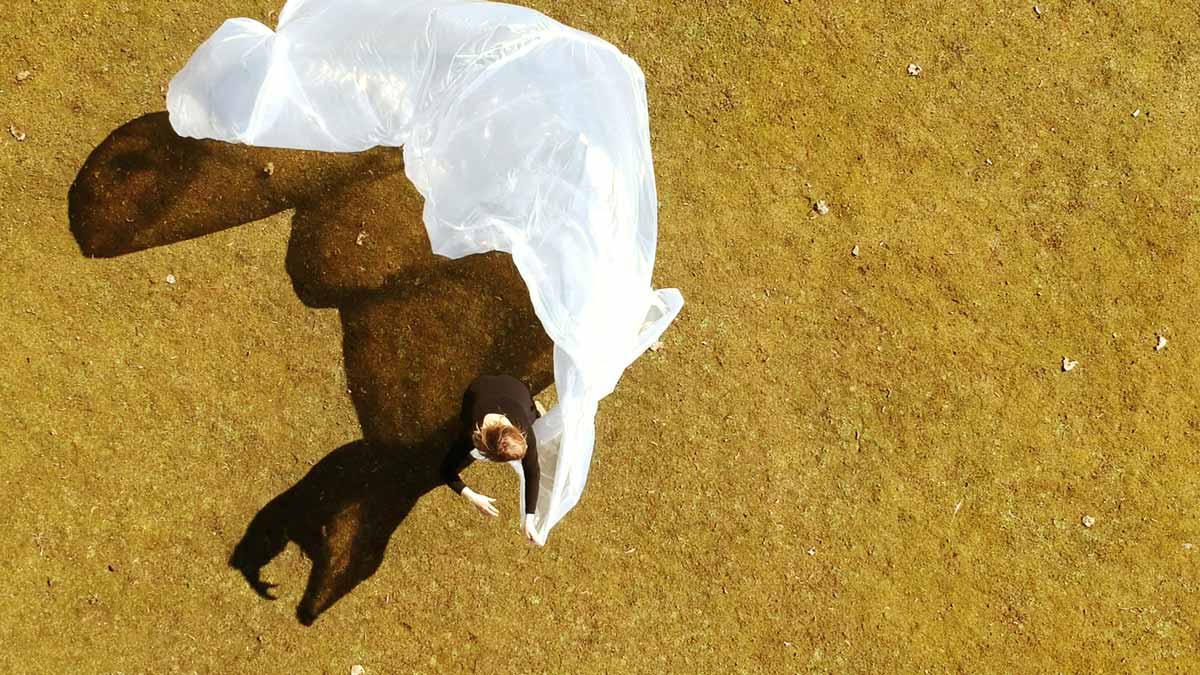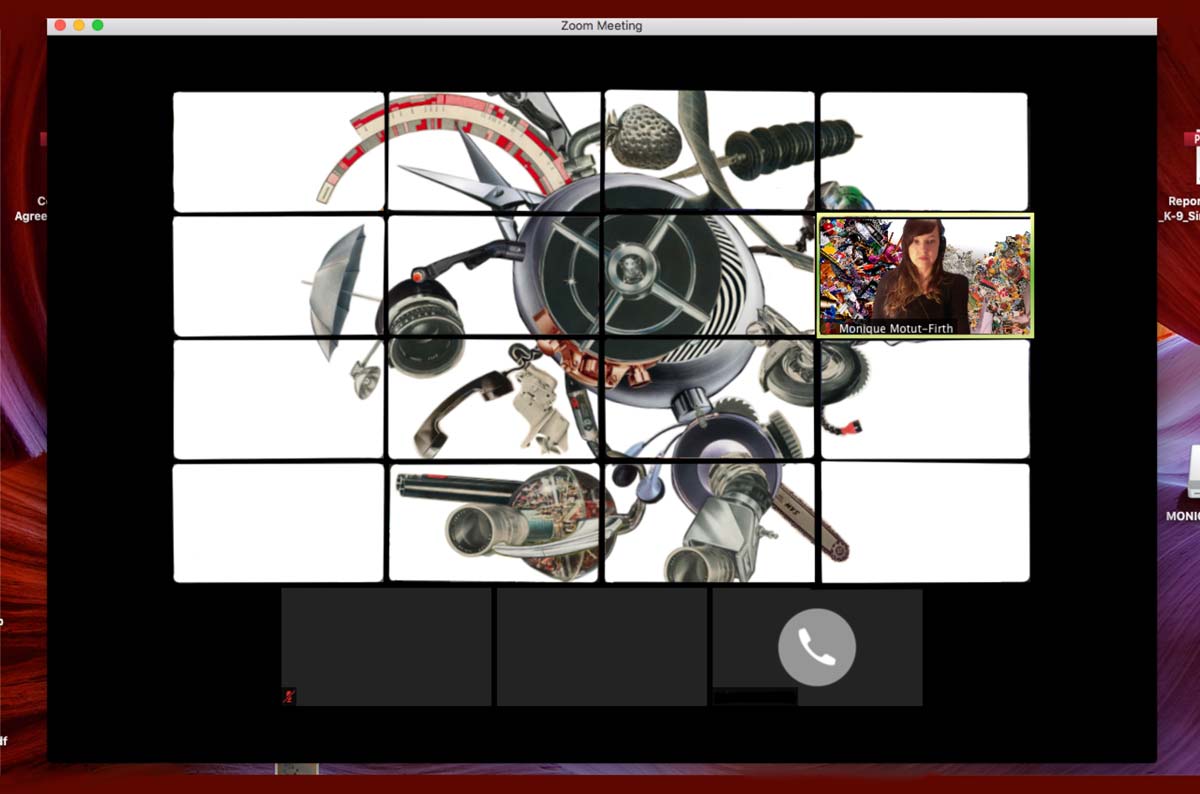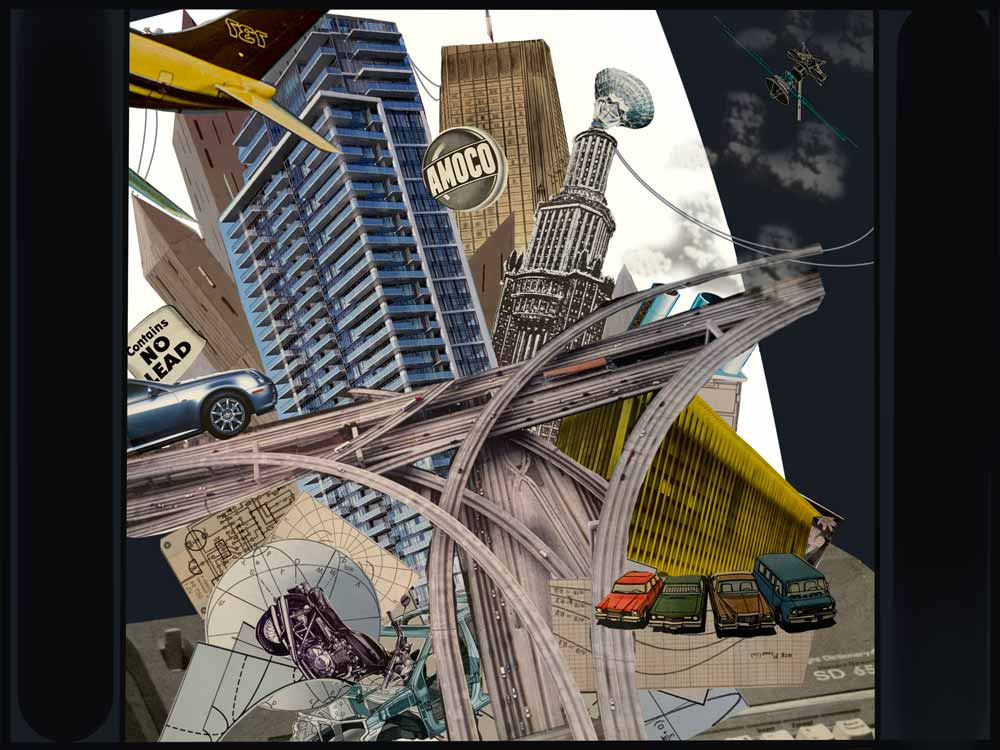B.5 Feeding the Fish: COVID, Surveillance Capitalism, Creative Practice, and the Digital Encounter
Wed Oct 20 / 11:30 – 13:00 PDT
voice_chat joinchairs /
- prOphecy sun, Simon Fraser University
- Freya Zinovieff, Simon Fraser University
Fish depend on each other to survive. Indeed, they swim in schools, hide in crevasses, change colour and mingle to generate one large fish-body upon encounter. Thinking like fish, Haraway suggests that we learn how to become "beings-in-encounter" (Harway, 2008). Building on these notions, pandemic measures have reshaped our cultural and social landscape to form singular geographies created through digital devices and the complexities of surveillance capitalism. This session asks: does our increased use of mobile and digital forms come at a cost? How can we unsettle the utopia dystopia dichotomy, and define what it means to be authentic within the digital-encounter? We invite papers, creative and unconventional approaches that problematize how surveillance capitalism impacts our decisions, routines, sleep, imagination, and sense of ourselves as social beings. Together we want to imagine how in the midst of this global crisis, we can generate opportunities to mitigate this new terrain.
Dr. prOphecy sun is an interdisciplinary performance artist; queer, movement, video, and sound maker; mother; and current Jack and Doris Shadbolt Fellow at Simon Fraser University. Her practice celebrates both conscious and unconscious moments and the vulnerable spaces of the in-between in which art, performance, and life overlap. Her recent research has focused on ecofeminist perspectives, co-composing with voice, objects, surveillance technologies, and site-specific engagements along the Columbia Basin region and beyond. sun hosts Tapes and Beyond on Kootenay Co-op Radio and is the Arts Editor for Ecocene: Cappadocia Journal of Environmental Humanities. She performs and exhibits regularly in local, national, and international settings, music festivals, conferences, and galleries and has authored several peer-reviewed articles, book chapters, and journal publications.
Freya Zinovieff is an artist, researcher, and PhD student in the Critical Media Art Studio at Simon Fraser University. Her current focus is the potential for emerging technologies to reimagine the contrary temporalities of digital media, deep, and cyclical time, in order to illuminate the boundaries between the political and the ecological. Freya underwent her MFA at the University of New South Wales and holds a first-class honours degree from Cambridge School of Art at Anglia Ruskin. She has received multiple awards, including an Endeavour Scholarship, and has worked extensively as a curator.
B.5.1 Cam Hunters Presents: Statement on Declining Online Imaging and Recording
Cam Hunters (STÉFY McKnight and Julia Chan)
With the movement towards and increasing reliance on videoconferencing platforms for remote work, events, and teaching and learning due to COVID-19, we as artists, performers, instructors, and academics have been thinking of how to include video conferencing into our pedagogy in a way that centres care and compassion.
There are many reasons why someone may not want to appear on camera online or be recorded during an online session or meeting. On-camera gatherings on video-conferencing platforms such as Zoom, Skype, FaceTime, Microsoft Teams, Big Blue Button, Google Hangouts, or Google Meet may be triggering or retraumatizing for participants who are victims/survivors of digital abuse. Participants may be uncomfortable having their personal and private space, home, or office (or lack thereof) broadcast to others or those in positions of authority (such as employers, teachers, professors, et cetera). Participants may not wish to reveal family members, partners, friends, or any others who may be sharing their space at that time. Members of oppressed, marginalized, and/or highly surveilled groups may be reluctant to appear in digital spaces where security and privacy levels are unclear. Whatever the reason, we believe that everyone should have the ability to decide whether they wish to appear online or be recorded, without penalty.
In 2020, Cam Hunters created a Statement on Declining Online Imagining and Recording to be shared and circulated amongst our colleagues and peers. This paper will examine the creation of this document and some of the challenges of the current digital environment, as well as the ways that we have worked to incorporate the statement into our practices, teaching, and labour.
Cam Hunters is a collaborative art/media performance and research-creation project between artists Julia Chan and STÉFY. Cam Hunters seeks to reveal and interrogate the increasing presence of surveillance, in all its forms, in our lives. We do this through a range of projects, such as performances, creating satirical videos, recording a podcast, and offering critical tools.

Reese Muntean, Carrying Others, 2019.
B.5.2 Digital Approaches to Research-Creation
- prOphecy sun, Simon Fraser University
- Reese Muntean, Simon Fraser University
Since 1911, drones have been used by the military for missile and weapons testing, surveillance, aerial refuelling, airstrikes, cargo transportation, and geological surveying and mapping (Remy, 2011). More recently, drones have migrated into everyday cultural arenas such as theatre, installation, film, photography, performance art, and sound. Thomas Stubblefeld suggests that the majority of drone art does not take up the inhered, political entanglements of violence, between military and civilian, and is instead pointedly re-imagining, re-appropriating this technology into new spheres (Stubblefeld, 2020). Indeed, contemporary artists use digital technologies such as drones as actants to help them translate, transform or generate new aesthetic fragments and encounters with ethereal visual and auditory landscapes. This paper builds on these ideas and introduces Carrying Others, a series of artworks that take up vertical privileging and surveillance tools for creative production and dissemination. Carrying Others features a series of aerial vignettes using drones that survey and surveil the landscape. Referencing Michele De Certeau's ideas on how pathways unsettle existing patterns and habits — mental, physical, and emotional — this work illustrates a spectrum of methods and potentialities on how pathways become meaningful or transformative as we breathe new life into them. This lens-based work brings the view up close, following a body meandering through a Vancouver park, next to water passages along their journeys elsewhere, investigating movement and unknown perspectives rarely seen or felt. Ultimately, this speculative artwork presents an improvisational layered account of discovery, evaluation, and reflection — revealing how bodies meld with objects to become other, and how new physical geographies and potentialities of flight and surveillance can carve space in urban landscapes.
Dr. prOphecy sun is an interdisciplinary performance artist; queer, movement, video, and sound maker; mother; and current Jack and Doris Shadbolt Fellow at Simon Fraser University. Her practice celebrates both conscious and unconscious moments and the vulnerable spaces of the in-between in which art, performance, and life overlap. Her recent research has focused on ecofeminist perspectives, co-composing with voice, objects, surveillance technologies, and site-specific engagements along the Columbia Basin region and beyond. sun hosts Tapes and Beyond on Kootenay Co-op Radio and is the Arts Editor for Ecocene: Cappadocia Journal of Environmental Humanities. She performs and exhibits regularly in local, national, and international settings, music festivals, conferences, and galleries and has authored several peer-reviewed articles, book chapters, and journal publications.
Reese Muntean is a PhD student at the School of Interactive Arts and Technology at Simon Fraser University. Her research interests include the collaborative development of ethnographic new media projects, including tangible computing, 3D scanning, and virtual reality applications. Her current work examines how virtual reality and 360° video can be used to foster cultural and environmental sustainability. She has collaborated with communities in Canada and Thailand, as well as with the United Nations, to create images and interactive installations to convey values, cultural knowledge, and environmental issues.

Monique Motut-Firth, Pliability of Paper Drone, 2021.

Monique Motut-Firth, Sun in the Beginning, 2021.
B.5.3 The Pliability of Paper: Mothering, Teaching, and Making Art from within the Rectangle
Monique Motut-Firth, Visual College of Art and Design
The digital fluidity of visual movement in our contemporary moment is dizzying; we are physically moving through time and space while flipping between different screens; images slide past us as digital scrolls, flicker from buildings, pop up as digital windows collapsing and reopening. We slide them up and down and push them aside as they fight for more and more for our attention; we subscribe to them, block them.
As an artist, Arts instructor, and mother firmly entrenched the tactile, the shock of being sent into the digital realm one spring afternoon in 2020 was an exhausting affair. Using cut-out paper to explore contemporary culture, I had been making paper collage machines that were meant to draw attention to surveillance capitalism by creating machine-like compositions from consumer products that looked back at us — the viewer. This reality became all too real during the global pandemic of 2020. Interacting with my students through the screen, my children participating with their peers and teachers digitally, Online openings; all the art and artists on display from our own little rectangles, imagine my surprise when I realized that I too had become of these digital images.
I have become a digital image present on my own screen. I can be shrunk, expanded, collapsed, muted, and shuffled. What does this mean as an Arts educator, parent, and artist? How can the paper materials of my artistic practice better mirror the deepening of this new digital space? This proposal seeks to explore some of the complexity of at once navigating a fluid, complex digital experience and the adaptation of both a teaching and artistic practice by pursuing the pliability of paper through digital space.
Using paper cut-outs to explore the recent past of pop culture, Monique Motut-Firth recombines familiar images into playful reconstructions of visual understanding. Motut-Firth holds an MFA, 2015 from Emily Carr University of Art + Design; a BFA, 2010 from ECUAD; and a BA, 2003 from UBC. She has been awarded residencies at the Banff Centre for the Performing Arts and at Void Gallery in Saskatoon, as well as a number of awards and scholarships, including the Margaret Lawrence Scholarship in Arts. In 2016, she was a finalist for the Vancouver Arts Society Emerging Artist Award. In 2017, her solo exhibition Consumed was a Selected Exhibition for the Capture Photography Festival. In 2019, she was a finalist for the Capture Photography Festival Canada Line Competition. Her works have been collected across Canada and the US.